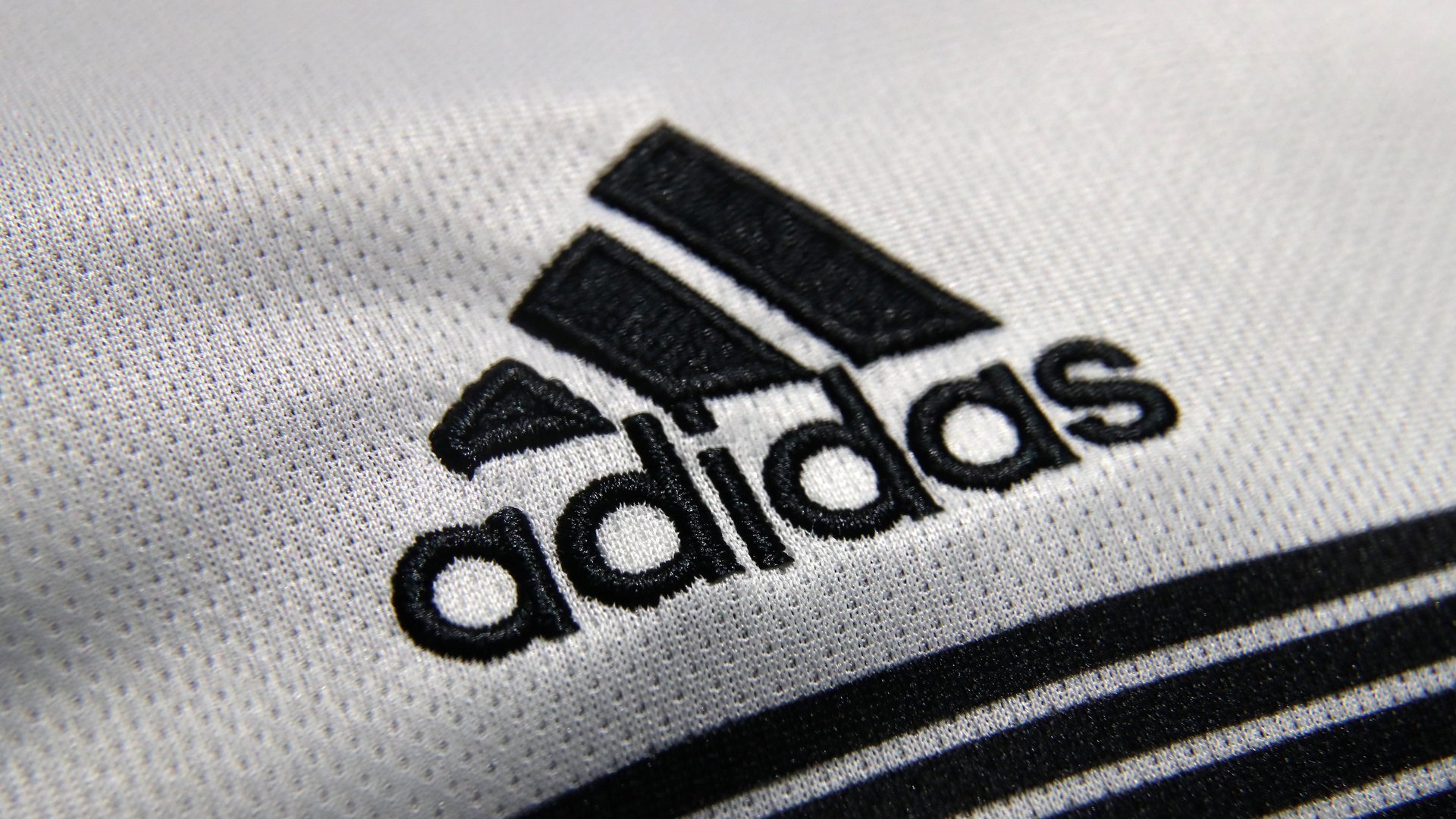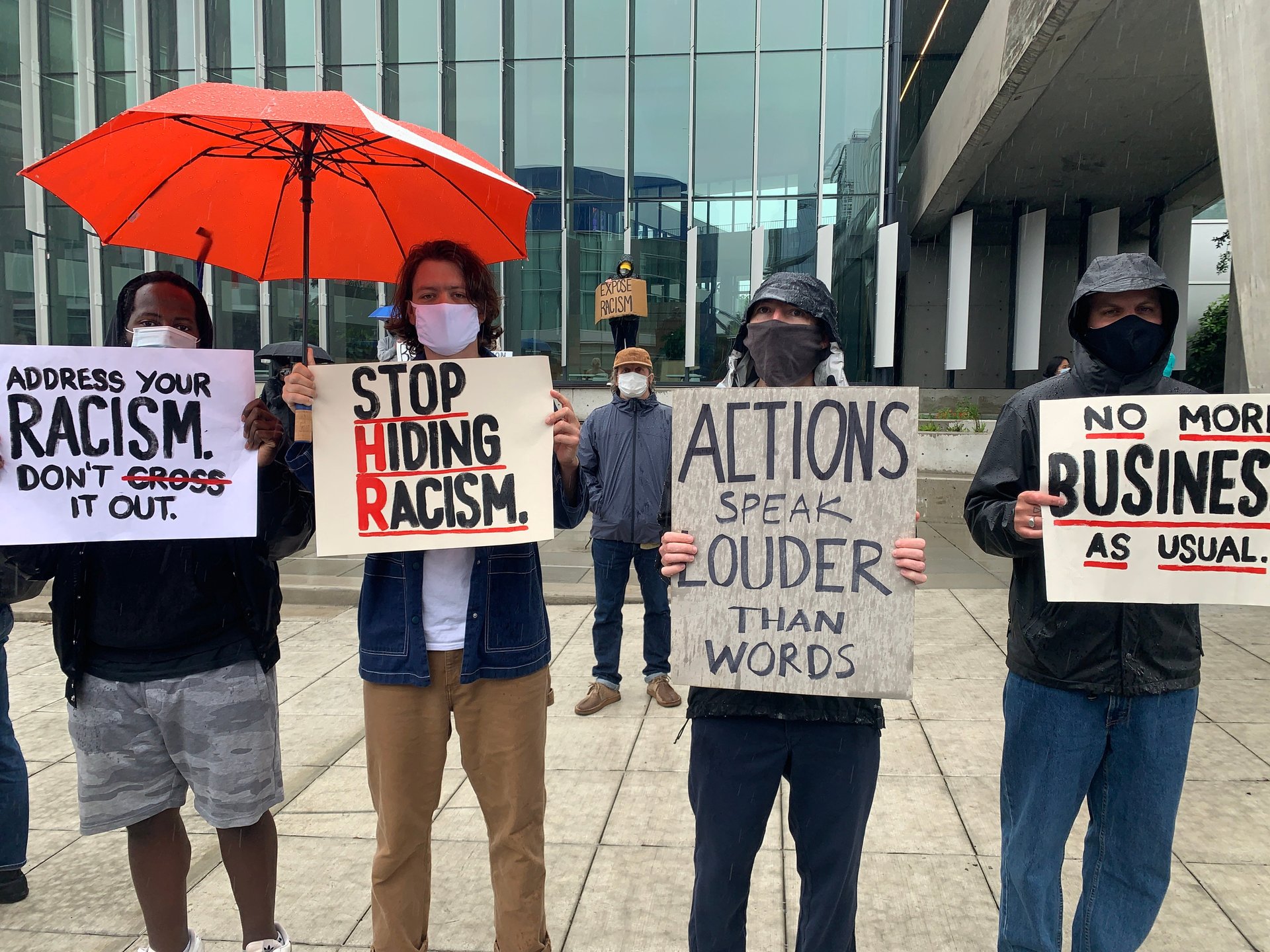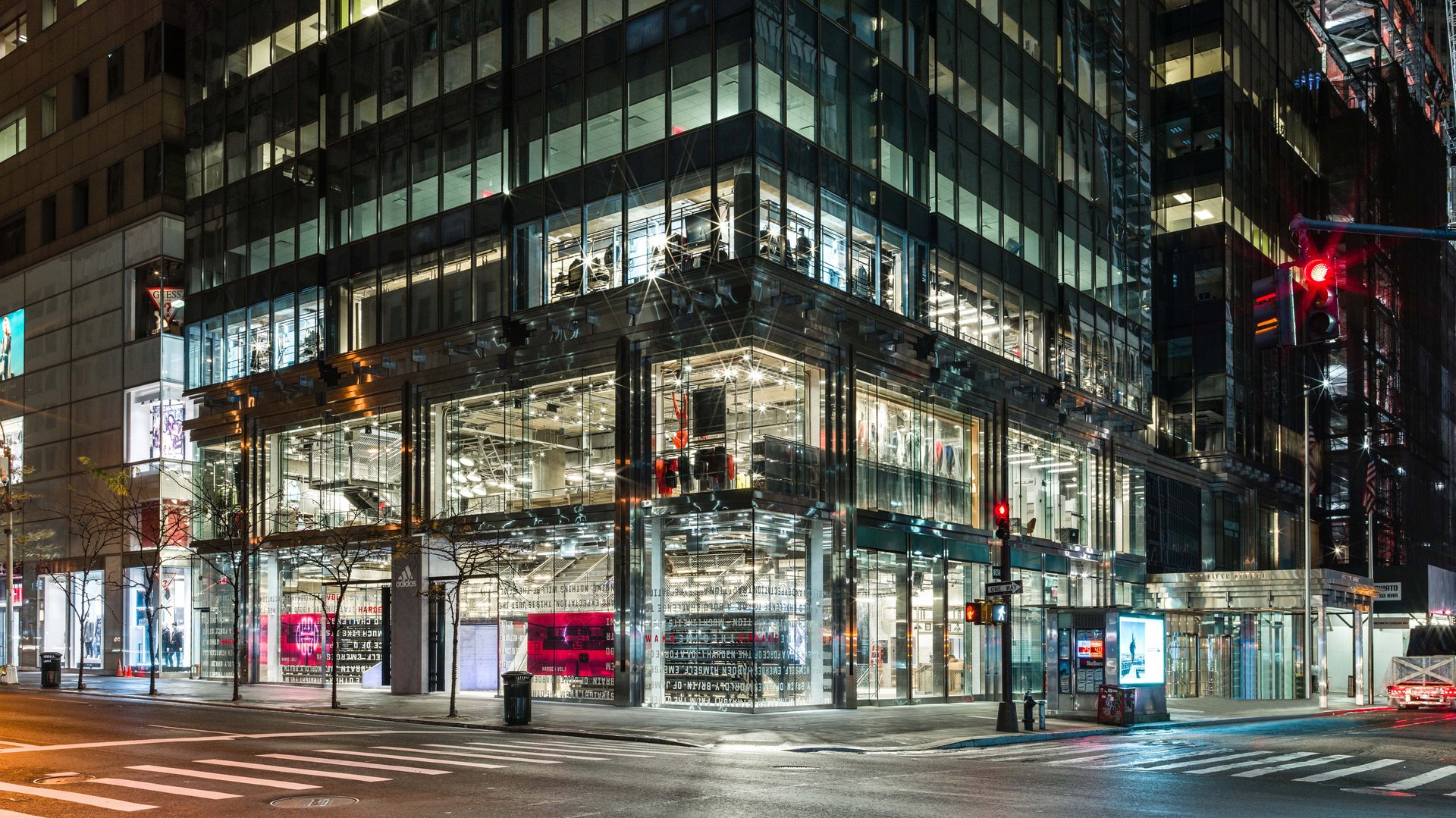Adidas’s inaction on racism starts at the top, employees say
In August 2019, Reebok held an all-staff meeting at its Boston headquarters with several board members from its parent company, German sports giant Adidas. The board members, including Adidas CEO Kasper Rorsted, were there to give Reebok employees a general update, but also to answer questions submitted anonymously by employees ahead of time.


In August 2019, Reebok held an all-staff meeting at its Boston headquarters with several board members from its parent company, German sports giant Adidas. The board members, including Adidas CEO Kasper Rorsted, were there to give Reebok employees a general update, but also to answer questions submitted anonymously by employees ahead of time.
Among the questions put to them was how Adidas and Reebok would address the concerns of non-white and LGBTQ employees who felt discriminated against and overlooked at the company, as had been publicized two months earlier in a New York Times story. It was a sore subject for a number of employees who had been raising the issue for months by the time the meeting occurred.
Karen Parkin, an Adidas board member and its global head of human resources, provided the answer, according to multiple Reebok employees who were at the event. The company, she said, would remain focused on its current path toward gender diversity and a more globalized workforce. She described the concerns about how non-white and LGBTQ employees were treated as “noise” coming only from the organization’s North America offices, in contrast with its global headquarters in Germany and other outposts, and suggested the company didn’t need to address them.
“It sparked quite a lot of outrage,” said Aaron Ture, a US-based Reebok employee who was present at the meeting. For nearly a year, the company didn’t apologize or acknowledge the incident further. Recently, Ture, who is a gay person of color, focused on it as an example of the problems at the organization in an open letter he sent to Adidas’s senior leadership and posted publicly on Instagram.
It was one of several examples of employees lately sending letters throughout the company and posting grievances online. Their public comments have come in reaction to Adidas’s messaging on social media following the widespread protests against historic and ongoing police killings of Black Americans, including George Floyd, Breonna Taylor, Tony McDade, Sean Reed, and many others. On Instagram, the company condemned racism and called for unity in creating change. The response angered employees such as Julia Bond, an assistant designer at Adidas, who sent a letter to the company’s management on June 3 calling out its complacency on racism internally while publicly claiming to support the Black community. Other employees followed.

Adidas, a European company, relies on Black Americans to buy and promote its products. That community is key to its public image, and by extension to the €23.6 billion ($26.4 billion) in global sales it did in 2019. North America alone made up approximately 22.5% of that business. After employees began speaking out, the company did recently make a public commitment to increase the diversity of its new hires in the US.
Yet multiple employees who spoke to Quartz felt the long inaction on racism and discrimination in the company was related to Adidas’s leadership. Ture, who has been at the company nearly three years, said in that time the company has been slow to take genuine action, even though he believed some members of its leadership did recognize the need to reform the workplace culture. “The board is the driving force for change,” he said. “It is very apparent that change hasn’t happened. I do account that to some part to Karen, because this is her role.”
After Quartz reached out to Adidas for comment, a spokesperson confirmed that Parkin apologized on the company’s internal messaging channels this morning. “At a company meeting in Boston last year, in response to a question regarding a media report about adidas, I made a comment regarding how our company at that time viewed issues of race within our North American headquarters, I should have chosen a better word,” her statement said. “As the Executive Board Member responsible for HR, it was my responsibility to make clear our definitive stance against discrimination, and this I did not. Should I have offended anyone, I apologize.”
The internal message also promised that her team is committed to improving equity, diversity, and opportunity at Adidas.
Parkin, who was born in England and also holds an American passport, joined Adidas in 1997 as a sales director in the UK. She rose through the different roles in the company’s business and supply chain operations, until becoming its chief human resources officer in late 2014. She was appointed to the company’s executive board in 2017.
One employee involved with the company’s senior leadership, who would only speak on condition of anonymity, pointed to both Parkin and Rorsted as the root of the inaction on complaints of racism and discrimination at Adidas. This person described them as the two most powerful figures in the company, and said while much of the staff and leadership are passionate about the need to increase racial and ethnic representation, the pair have not made it a priority. According to the employee, Rorsted has been most concerned with Adidas’s financials—particularly in the present moment, when the Covid-19 crisis is hitting Adidas’s business—and the employee believed Parkin hasn’t understood the need for racial and ethnic diversity.
“They’re the ones that are ultimately going to approve or deny anything,” the employee said. “Others are generally supportive. I think the naysayers outright are Kasper and Karen, who don’t get it.” The employee noted that a recent email from the company’s corporate HR office, which they described as answering to Parkin and Rorsted, mandated there be “no statements from senior leaders” made on the protests decrying racial injustice.
Adidas disputed this characterization of its leadership. “Adidas and Reebok have always been and will always be against discrimination in all forms and stand united against racism,” the company said in a statement. It declined to comment on internal conversations or email exchanges but said leaders in the company had been communicating with employees and noted it held virtual meetings with all Adidas and Reebok employees to update them on its commitments against racism.
Still, for some time now, people of color within the company and those sympathetic to their concerns have only been growing more frustrated.
What “diversity” means
A sense among some employees is that Parkin in particular has been disconnected from the way they feel and not taken steps to genuinely address their concerns. One issue within the company seems to be different views on what “diversity” means to the global leadership versus staff in the US.
The diversity Parkin espoused at Reebok’s all-staff meeting is about gender, age, and country of origin. This view is evident in Adidas’s 2019 annual report (pdf). “As a company, we value diversity and promote inclusivity,” it said. “Today, our employee base is already very diverse in terms of gender, generation and global representation.” Racial and ethnic diversity are notably absent from the statement.
The report does note that the company continues to encourage its internal Employee Resource Groups, which are employee-led networks within the organization that can support different facets of its staff. One such group, Progressive Soles, is for people of color. It also says globally it aims “to ensure that our leadership development programs are a fair representation of employees in terms of gender, race, and nations.”
But internal documents from 2018 reviewed by the New York Times last year found just 4.5% of employees at Adidas’s North American headquarters in Portland, Oregon, identified as Black. By contrast, 13.4% of the US population is Black. The Times also reported that just three of Adidas’s approximately 340 worldwide vice presidents in 2018 were Black, and one had departed by the time of its report.

To employees at the company who want change, the lack of leadership roles held by people of color, especially in North America, is an acute problem. A coalition of employees at Adidas recently sent a 32-page document to the North American leadership with a number of demands. Among them were that Adidas increase representation of Black and Latino employees to 31% of staff across all levels of the US organization by the end of 2021. It also called on Adidas to interview Black and Latino candidates for every new and open position globally, to eliminate practices that limit career advancement for Black employees, and to create a zero-tolerance policy for behavior that marginalizes minority employees.
On June 9, Adidas responded, stating at least 30% of all new positions in the US at Adidas and Reebok would be filled with Black and Latino hires. It also announced a $20 million investment over the next four years in projects that support the Black community in the US—an amount it has since raised to $120 million. In an email to Quartz today, the company also noted it has a zero-tolerance policy for discrimination.
For employees such as Aric Armon, a designer of American football cleats who has been at Adidas more than seven years, the commitment on hiring wasn’t enough. “The 31% representation, for us it was to be at all levels of the company, not just new hires,” he said. The concern he said he and others have is that this hiring, which is largely on pause anyway as Adidas navigates the Covid-19 crisis, will not be for leadership roles. “That’s where these problems stem from, is not having a seat at the table,” he said.
The company’s six-person executive board is entirely white, and its 16-person supervisory board is overwhelmingly white as well. The human resources department is also largely white, according to Armon. Black employees can be left having to explain and justify their feelings of being discriminated against to staff that’s ostensibly there to address their problems but often fails to understand them.
Bond, who sent the June 3 letter to the company’s leadership, said she had taken complaints about racism and discrimination to human resources but received no adequate response. She noted that she tried to escalate complaints to those higher up in the department too. “I do believe it is being stopped from someone up top, but I haven’t been able to pinpoint who exactly,” she said.
Adidas said in a statement that any claim it was aware of complaints and did not take action is inaccurate.
Profiting from Black culture
To Adidas’s Black employees, the feeling that they’re overlooked in their workplace is especially hurtful and frustrating given how much Adidas has celebrated Black culture in its marketing and benefited from its ties to Black Americans.
Going back to at least rap group Run-DMC in the 1980s, Black Americans have been important supporters of the brand, and Adidas has long played up its associations with Black culture. Many of its most famous public faces are Black: celebrities such as Beyoncé, Kanye West, Pharrell Williams, and Donald Glover; NBA players James Harden and Damian Lillard; skateboarder Tyshawn Jones; and more.
“We really want to associate the brand with Blackness and Black culture, especially in America, but even that gets exported out to the rest of the world,” Armon said. “The brand sees that as a huge value. Every single inspiration deck, every single consumer deck, every single muse oftentimes is a young Black kid. Black employees are brought into the brand for those insights, for that connection to that culture, to come up with ideas to basically serve as a pipeline of those insights.”
Those contributions have helped Adidas attract shoppers in the US and beyond. “I think that it is felt in all areas of our company,” Bond said. “It just goes to show a lack of accountability when it comes to the culture that we show people and our consumers.”
Adidas has now publicly acknowledged the issue. On June 11, the company posted a statement to Instagram saying, “We’ve celebrated athletes and artists in the Black community and used their image to define ourselves culturally as a brand, but missed the message in reflecting such little representation within our walls.” It added it was time to “own up” to its silence.
The employee involved with senior leadership said they believed Adidas’s recent measures to improve racial and ethnic diversity in the company were undertaken because of the intense pressure from staff and public scrutiny, not because it had truly understood it was the right thing to do.
Still, more than one employee Quartz spoke with pointed out that they felt the company could be different. “I just want it to be better for the next generation of kids coming up who see working for one of these big brands as a life goal of theirs,” said Armon. “Maybe they don’t have that crushed once they get here.”
Adidas had reorganized repeatedly in the past for business reasons, he added. It’s time it reorganized for diversity.